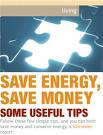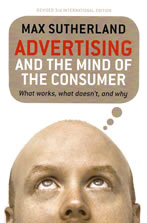![]() Receive new posting via RSS feed. >Click the icon on the left to subscribe.
Receive new posting via RSS feed. >Click the icon on the left to subscribe.
(Or right click the icon to copy and paste the link into your rss reader)
Conformity as a Turn-off Tactic: Reducing Energy Consumption.
 Turn-off tactics used in anti-smoking and road safety campaigns will inevitably be co-opted to get people to reduce their consumption of oil, energy, gasoline, water etc. Here is a very simple turn-off tactic that might help address the energy binge.
Turn-off tactics used in anti-smoking and road safety campaigns will inevitably be co-opted to get people to reduce their consumption of oil, energy, gasoline, water etc. Here is a very simple turn-off tactic that might help address the energy binge.
Marketing messages are increasingly deployed in the attempt to curb smoking, drugs, alcohol and unsafe driving practices. See the Turn-off Tactics section of this website. With the global warming threat now acknowledged, these marketing turn-off tactics are being applied to reducing people’s consumption of scarce commodities like oil, energy, gasoline, water etc.
If marketing can be as successful in turning people off as it has been in turning people on, it will be wearing a white hat.
 ‘Save money’ is an obvious turn-off tactic appeal that can be utilized in curbing consumption. ‘Save the planet’ is another. And stigmatizing over- consumption (e.g. energy hogs) is another. There are many possible approaches but the one that I focus on in this column is conformity.
‘Save money’ is an obvious turn-off tactic appeal that can be utilized in curbing consumption. ‘Save the planet’ is another. And stigmatizing over- consumption (e.g. energy hogs) is another. There are many possible approaches but the one that I focus on in this column is conformity.
Conformity, being with the in-group, not being out of step, is a powerful human motivator. It can make the crucial difference in many brand choice decisions (see my book, Ch.4 Conformity - the popular thing to do) but how can it be harnessed as a turn-off tactic? Some recent research shows the way.
This paper from May 2007 issue of Psychological Science is entitled "The Constructive, Destructive, and Reconstructive Power of Social Norms". Robert Cialdini is a co-author. (If you haven’t read Cialdini’s book "Influence: Science & Practice ", do yourself a favor! It is the best book ever written on the subject.) Like most research involving Cialdini, this paper is a gem.
It is well known that people tend to conform to what they think other people think and what they think other people do. As some wit once said, “When people are free to do as they please, they usually imitate each other”. People’s perceptions of other people’s behavior are a standard against which they compare their own. The researchers here wanted to see what would happen if you provide feedback to household users of electricity energy as to just how their own consumption compares in relation to others.
The researchers performed a clever field-experiment amongst 290 California households. These households were given feedback about how much energy they had consumed in the previous weeks and whether theirs was above or below the average for their neighborhood.
Did it work? Yes, indeed. Faced with the knowledge of their own energy consumption compared to the average for their neighborhood, households who previously used above-average amounts of energy significantly decreased their consumption.
But wait… before you rush off to put this conformity principle to work, read on. It worked only for getting people who were above the norm to conform and reduce their energy consumption. However there was also a boomerang effect.
The Boomerang Effect.
Conformity can work both ways. In this case, it also worked on those who used less energy than the norm. The researchers found in the same study that these people, once they knew they were low energy consumers, began to conform to the norm by raising their subsequent energy usage. It is unlikely that this was a conscious thing but their increased usage was real nonetheless.
So where does this leave conformity as a turn-off tactic? Is there anything you can do about the undesirable side effect? Fortunately, yes. The researchers tested an additional message in the same study to see if they could prevent this boomerang effect.
The additional message communicated what the researchers called the ‘injunctive norm’. Whereas the ‘descriptive norm’ communicates what the majority of people do, the ‘injunctive norm’ involves communicating whether the culture approves of that behavior or not. With half of the households in the study, the communication also signaled approval or disapproval (the injunctive norm) by way of an emoticon. This was placed on the information about the household’s consumption that compared it with the rest of the neighborhood. If the household’s consumption was low, the emoticon was a smiley face J. If it was high, the emoticon was negative L (a frowning face).
This double-barreled message worked and produced very different results! Households receiving both the average usage information and the emoticon responded in the desired way. The high energy users reduced their consumption while low energy users kept theirs stable. Sometimes simple things produce profound effects.
Here we have a very simple turn-off tactic that could well be rolled out for adoption more widely by power utilities and governments. Here is one small study that if successfully replicated, might go some way to addressing the energy binge that threatens the planet.
"When one tugs at a single thing in nature, he finds it attached to the rest of the world."
--John Muir (Founder of the Sierra Club)
Notes
Schultz, P. W., J. M. Nolan, et al. (2007). "The Constructive, Destructive, and Reconstructive Power of Social Norms." psychological Science 18(5): 429-434.
.Download pdf copy of "Conformity as a Turn-off Tactic " - June 2007.pdf"
For more on turn-off tactics... click here.


